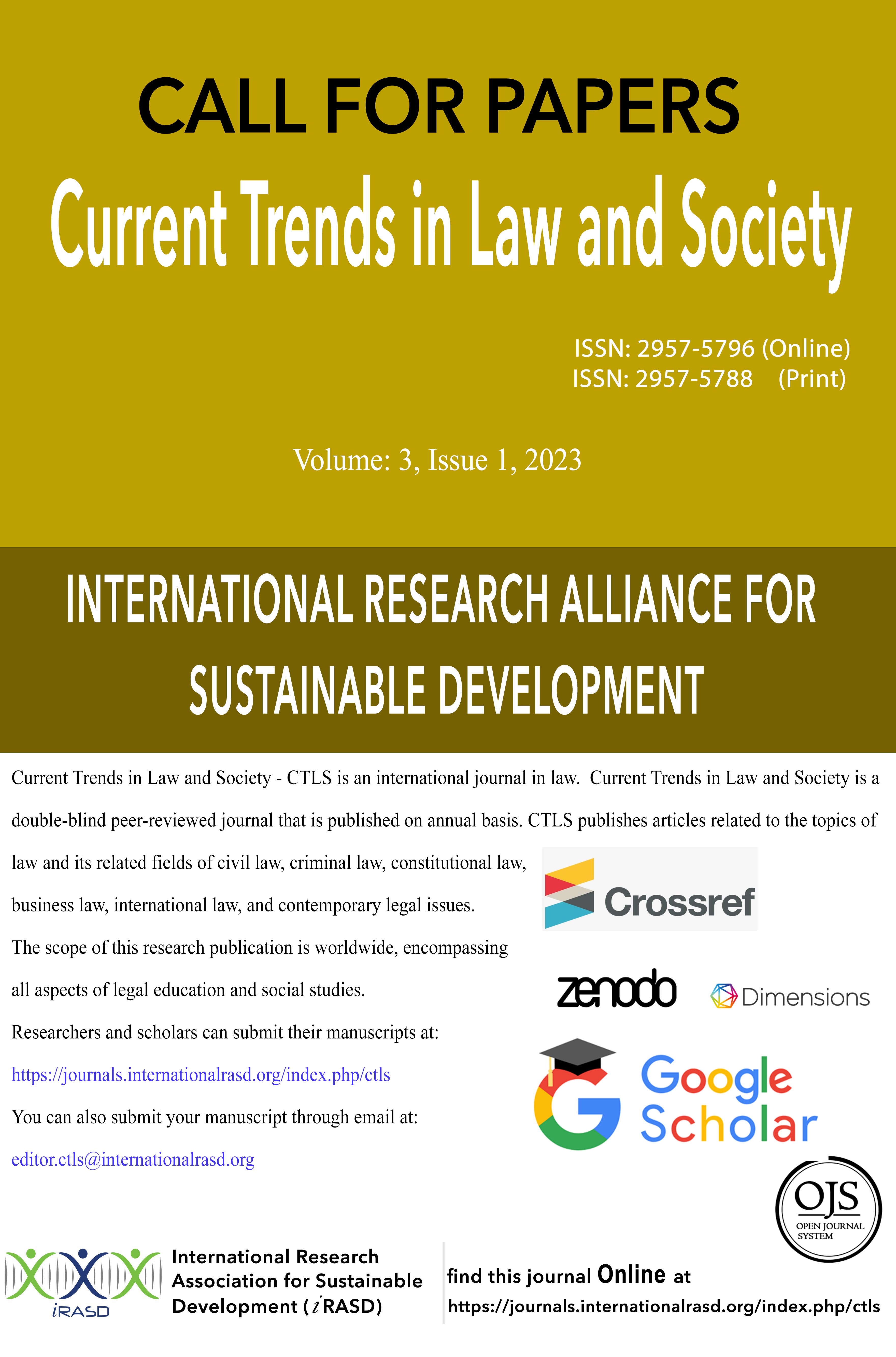Pendency of Cases in Pakistan: Causes and Consequences
DOI:
https://doi.org/10.52131/ctls.2024.0401.0031Keywords:
Courts, Delay Justice, Justice System, Pakistan, Pending CasesAbstract
The legal system of any civilized society is built on the principles of justice. Unfortunately, Pakistan's legal system is unable to keep up with the demand. Approximately, two million cases are under trial in Pakistani courts. In Pakistan, justice has become both a dream and an impossible goal. The only practice followed in Pakistan is a delayed. The main goal of this article is to highlight why justice is taking so long. Complex rules, outdated laws that don't work, the way judges and lawyers think, and a backlog of cases in Pakistan's higher and lower courts all add to how long it takes to get justice. This paper discusses about why the courts in Pakistan take so long and what can be done to fix the problems they cause. This study examines the relationship between the growing backlog of cases and the development of injustice. This article also discusses about how slow justice affects both society as a whole and the people who are going to court. This article concludes with suggestions to make an effective Justice system of Pakistan.
Downloads
Published
Issue
Section
License
Copyright (c) 2024 Muhammad Imran, Rao Qasim Idrees, Muhammad Arif Saeed

This work is licensed under a Creative Commons Attribution-NonCommercial 4.0 International License.







